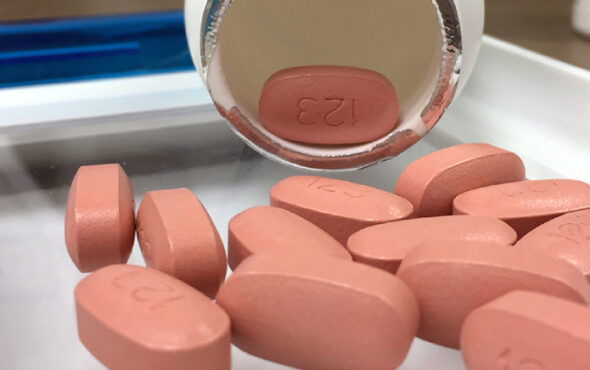
The UK is facing criticism for its decision to reduce the amount of money it donates to the Global Fund, which exists to fight three of the world’s deadliest diseases: AIDS, tuberculosis and malaria.
Since being established by the G7 in 2002, the organisation is believed to have saved 50 million lives.
Just last year, it gave lifesaving antiretroviral therapy for HIV to 23 million people and helped 5.3 million with treatment and care for tuberculosis.
In fact, the Global Fund’s efforts have helped reduce the combined death rate from the aforementioned diseases by half in the countries it invests in.
“The UK and others founded the Global Fund because we refused to accept the loss of millions of lives every year to preventable and treatable diseases,” said Andrew Mitchell, the Minister for Development, in the UK government’s announcement of a further £1bn in aid on 14 November.
“Countries with better health systems and healthier people are more likely to be stable and prosperous and this fund gives hope and opportunity to millions who would otherwise suffer. Malaria kills a child nearly every minute of every day. These are wholly preventable deaths, and the UK is dedicated to preventing them.”
The government said the new commitment will provide two million people living with HIV with antiretroviral therapy and more than one million with tuberculosis treatment and care.
It will also result in the distribution of around 86 million mosquito nets to protect against malaria, with the financial support aiming to result in more than 28 million new infections or cases of the diseases being avoided by diagnosing and treating those already infected.
Thank you, #UnitedKingdom for your £1 billion pledge to the @GlobalFund Seventh Replenishment.
Working together, we’re ready to #FightForWhatCounts to build more resilient and sustainable systems for health.@10DowningStreet | @FCDOGovUK | @hmtreasuryhttps://t.co/ovkfv0TgZ5 pic.twitter.com/PgPdnnOj5k
— The Global Fund (@GlobalFund) November 14, 2022
The UK’s donation is, however, a reduction from the £1.4bn it gave in 2019 and falls short of the £1.82bn the Global Fund was hoping it would pledge.
Although the all-party parliamentary group on HIV and AIDS welcomed the government’s support, especially given the current state of the economy, it noted that “only the UK has cut its pledge to the Global Fund.”
“We are concerned that this cut from £1.4 billion risks jeopardising the UK’s own domestic efforts in ending HIV,” it said in a statement.
“As we’ve clearly learnt from COVID-19, pandemics don’t respect borders. If we can’t control HIV globally, it’ll jeopardise our domestic efforts.”
Today the @GOVUK have pledged £1 billion to the @GlobalFund.
Whilst this announcement is disappointing, we welcome it as it enables us to continue to #FightForWhatCounts to build more resilient and sustainable systems for health around the world.
Read out full statement below. pic.twitter.com/pd36K1tIFe
— APPG on HIV and AIDS (@APPG_HIV_AIDS) November 14, 2022
The cut in funding was also criticised by a number of charities and MPs, especially given that other countries such as the US, Canada, Germany and Japan were increasing their spending.
Labour MP Sarah Champion questioned “what will be cut as a consequence” of the government’s decision.
“UK aid pledge will save over one million lives from killer diseases, but considerably less than @GlobalFund had requested,” she wrote on Twitter.



